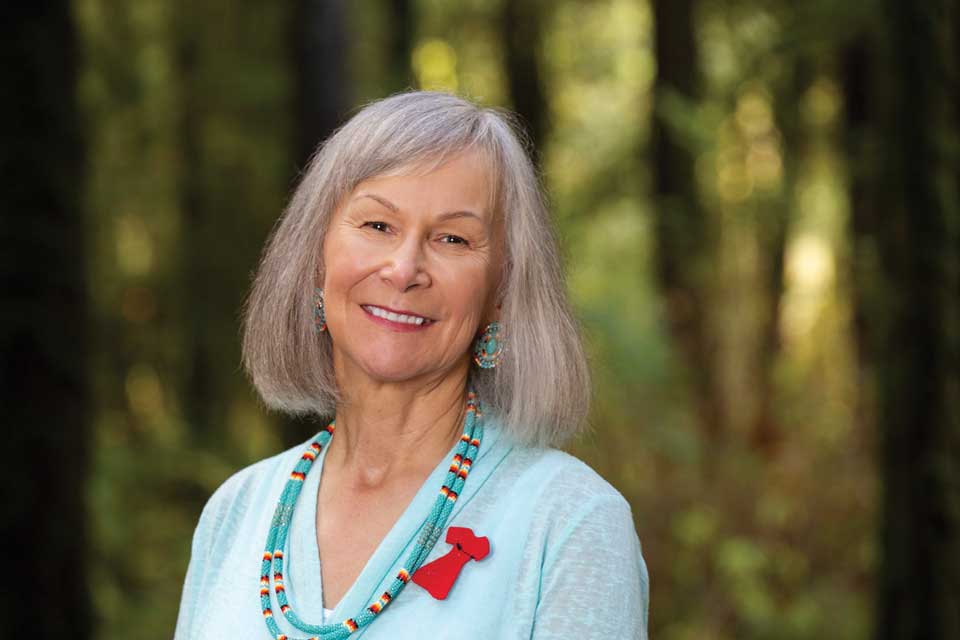Expert Q&A with renowned jurist and UVic alumna Marion Buller

Marion Buller—an influential Indigenous legal scholar and the former chief commissioner of the National Inquiry into Missing and Murdered Indigenous Women and Girls (MMIWG)—is named the University of Victoria’s 12th chancellor. She begins a three-year term on Jan. 1, 2022.
Buller is a member of the Mistawasis Nêhiyawak, a Cree First Nation in Saskatchewan. A longtime advocate for Indigenous issues and rights, in 1994 Buller was the initial First Nations woman to be appointed as a judge in British Columbia. A little over a decade later she created and presided in the First Nations Courts of BC—now known as Indigenous Courts—and provided the foundation for the Aboriginal Family Healing Court conferences. In 2016, she was also appointed as chief commissioner for the MMIWG national inquiry.
Q. You’ve had a long legal career and made many contributions to the area of Indigenous justice. Why did you agree to take on this role at UVic?
A. First, I’m honoured to be considered the next UVic chancellor and carry forward the great work of Shelagh Rogers. I’m a graduate of UVic—I earned my undergrad and law degrees here—so this institution has been extremely important in my life and my career. Education is a gift that should be shared generously and wisely. I want to give back.
Q. Did you always envision a career in law?
A. Other than one relative on my mom’s side, there were no lawyers in my family—this wasn’t a family legacy by any stretch. I describe my law education as an “unplanned opportunity.” My law mentors lit a fire in me that set me on my legal path, including the absolute privilege of working with the late Anthony Sarich, who was the commissioner of the Cariboo-Chilcotin Justice Inquiry.
Q. Why are you convinced UVic’s commitment to truth and reconciliation is sincere and the work it does can be meaningful?
A. UVic has made a profound and sincere commitment to decolonization at an institutional level and to incorporating Indigenous ways of learning into all aspects of the university, including teaching and research, and especially around environmental issues. UVic has also committed to truth and reconciliation, and to recognizing of the role of Indigenous Peoples on Vancouver Island and across Canada.
I’ve been paying close attention to the work UVic has been doing and I believe there’s a deep commitment to those principles. That means entire generations of students will now learn with an awareness of Indigenous history and rights in a way most of their predecessors have not. That is exciting and I want to be part of that.
Q. How do you feel about joining your alma mater in this role at a time when there’s so much attention on issues around Indigenous Peoples in Canada?
A. My grandparents had experiences with a residential or day school. They saw education as a way to move forward—the key to living both worlds, Indigenous and non-Indigenous, and to live, work and be successful in both cultures. I’m honoured, thrilled and excited to take on this role at UVic. It’s a full-circle moment and I’m looking forward to working with President Kevin Hall, the Board of Governors and the Senate, and getting to know the broader UVic community. We have a great responsibility to UVic’s students and I will be mindful of that every day.
Q. How do you think your skills, your education and your varied professional background suit you to this new role?
A. I bring many years of experience as a trial lawyer, courtroom judge and chief commissioner of a national inquiry. I’ve observed what does and what does not work in the deeply emotional work of Indigenous reconciliation. I can bring this lens in my new role.
As a leader I’ve strived to use my privilege and position to address systemic barriers and advance society and causes of justice. To be a leader now at such a time in Canada’s history and at an institution like UVic, that is doing the hard and rewarding work around decolonization, is an opportunity that I’m honoured to be given. I can’t wait to get started.

